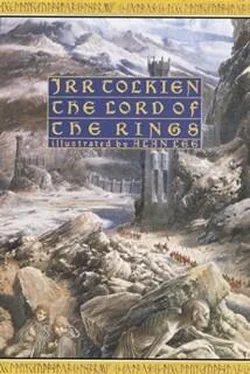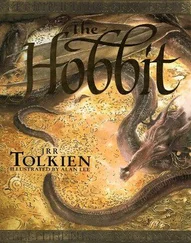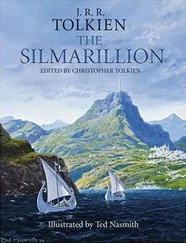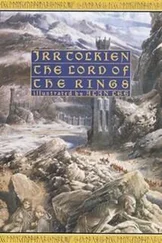John Tolkien - The Return of the King
Здесь есть возможность читать онлайн «John Tolkien - The Return of the King» весь текст электронной книги совершенно бесплатно (целиком полную версию без сокращений). В некоторых случаях можно слушать аудио, скачать через торрент в формате fb2 и присутствует краткое содержание. Жанр: Фэнтези, на английском языке. Описание произведения, (предисловие) а так же отзывы посетителей доступны на портале библиотеки ЛибКат.
- Название:The Return of the King
- Автор:
- Жанр:
- Год:неизвестен
- ISBN:нет данных
- Рейтинг книги:5 / 5. Голосов: 1
-
Избранное:Добавить в избранное
- Отзывы:
-
Ваша оценка:
- 100
- 1
- 2
- 3
- 4
- 5
The Return of the King: краткое содержание, описание и аннотация
Предлагаем к чтению аннотацию, описание, краткое содержание или предисловие (зависит от того, что написал сам автор книги «The Return of the King»). Если вы не нашли необходимую информацию о книге — напишите в комментариях, мы постараемся отыскать её.
The Return of the King — читать онлайн бесплатно полную книгу (весь текст) целиком
Ниже представлен текст книги, разбитый по страницам. Система сохранения места последней прочитанной страницы, позволяет с удобством читать онлайн бесплатно книгу «The Return of the King», без необходимости каждый раз заново искать на чём Вы остановились. Поставьте закладку, и сможете в любой момент перейти на страницу, на которой закончили чтение.
Интервал:
Закладка:
34
This name means "Ship of Long-foam'; for the isle was shaped like a great ship, with a high prow pointing north, against which the white foam of Anduin broke on sharp rocks.
35
'I gave Hope to the Dunedain, I have kept no hope for myself.'
36
I, 54
37
It flows into Isen from the west of Ered Nimrais.
38
The Hobbit , p. 52.
39
I, 54-54
40
Or released from prison; it may well be that it had already been awakened by the malice of Sauron.
41
The Hobbit , p. 229.
42
The Hobbit , p. 28.
43
Among whom were the children of Thráin II: Thorin (Oakenshield), Frerin, and Dís. Thorin was then a youngster in the reckoning of the Dwarves. It was afterwards learned that more of the Folk under the Mountain had escaped than was at first hoped; but most of these went to the Iron Hills.
44
Azog was the father of Bolg; see The Hobbit , p. 30.
45
It is said that Thorin's shield was cloven and he cast it away and he hewed off with his axe a branch of an oak and held it in his left hand to ward off the strokes of his foes, or to wield as a club. In this way he got his name.
46
Such dealings with their dead seemed grievous to the Dwarves, for it was against their use; but to make such tombs as they were accustomed to build (since they will lay their dead only in stone not in earth) would have taken many years. To fire therefore they turned, rather than leave their kin to beast or bird or carrion-orc. But those who fell in Azanulbizar were honoured in memory, and to this day a Dwarf will say proudly of one of his sires: 'he was a burned Dwarf', and that is enough.
47
They had very few women-folk. Dís Thráin's daughter was there. She was the mother of Fíli and Kíli, who were born in the Ered Luin. Thorin had no wife.
48
I, 54.
49
March 15, 2941
50
I , 54.
51
II, 54; The Hobbit , 162
52
III, 54.
53
I,54-54
54
II, 54
55
It afterwards became clear that Saruman had then begun to desire to possess the One Ring himself, and he hoped that it might reveal itself, seeking its master, if Sauron were let be for a time.
56
Months and days are given according to the Shire Calendar.
57
She became known as 'the Fair' because of her beauty; many said that she looked more like an elf-maid than a hobbit. She had golden hair, which had been very rare in the Shire; but two others of Samwise's daughters were also golden-haired, and so were many of the children born at this time.
58
I, 11; III, 54, note 24.
59
Fourth Age (Gondor) 120
60
365 days, 5 hours, 48 minutes, 46 seconds.
61
In the Shire, in which Year 1 corresponded with T.A. 1601. In Bree in which Year 1 corresponded with T.A. 1300 it was the first year of the century.
62
It will be noted if one glances at a Shire Calendar, that the only weekday on which no month began was Friday. It thus became a jesting idiom in the Shire to speak of 'on Friday the first' when referring to a day that did not exist. or to a day on which very unlikely events such as the flying of pigs or (in the Shire) the walking of trees might occur. In full the expression was 'on Friday the first of Summerfilth'.
63
It was a jest in Bree to speak of 'Winterfilth in the (muddy) Shire'. but according to the Shire-folk Wintrìng was a Bree alteration of the older name, which had originally referred to the filling or completion of the year before Winter, and descended from times before the full adoption of Kings' Reckoning when their new year began after harvest.
64
Recording births. marriages and deaths in the Took families, as well as other matters. such as land-sales, and various Shire events.
65
I have therefore in Bilbo's song (I, 54-54) used Saturday and Sunday instead of Thursday and Friday.
66
Though actually the yestarë of New Reckoning occurred earlier than in the Calendar of Imladris, in which it corresponded more or less with Shire April 6.
67
Anniversary of its first blowing in the Shire in 3019.
68
Usually called in Sindarin Menelvagor (I, 54), Q. Menelmacar.
69
As in galadhremmin ennorath (I, 54) 'tree-woven lands of Middle-earth'. Remmirath (I, 54) contains rem 'mesh', Q. rembe , + mîr 'jewel'.
70
A fairly widespread pronunciation of long é and ó as ei and ou , more or less as in English say no , both in Westron and in the rendering of Quenya names by Westron speakers, is shown by spellings such as ei, ou (or their equivalents in the contemporary scripts). But such pronunciations were regarded as incorrect or rustic. They were naturally usual in the Shire. Those therefore who pronounce yéni únótime 'long-years innumerable', as is natural in English (sc. more or less as yainy oonoatimy ) will err little more than Bilbo, Meriadoc, or Peregrin. Frodo is said to have shown great 'skill with foreign sounds'.
71
So also in Annûn 'sunset', Amrûn 'sunrise', under the influence of the related dûn 'west', and rhûn 'east'.
72
Originally. But iu in Quenya was in the Third Age usually pronounced as a rising diphthong as yu in English yule.
Интервал:
Закладка:
Похожие книги на «The Return of the King»
Представляем Вашему вниманию похожие книги на «The Return of the King» списком для выбора. Мы отобрали схожую по названию и смыслу литературу в надежде предоставить читателям больше вариантов отыскать новые, интересные, ещё непрочитанные произведения.
Обсуждение, отзывы о книге «The Return of the King» и просто собственные мнения читателей. Оставьте ваши комментарии, напишите, что Вы думаете о произведении, его смысле или главных героях. Укажите что конкретно понравилось, а что нет, и почему Вы так считаете.












